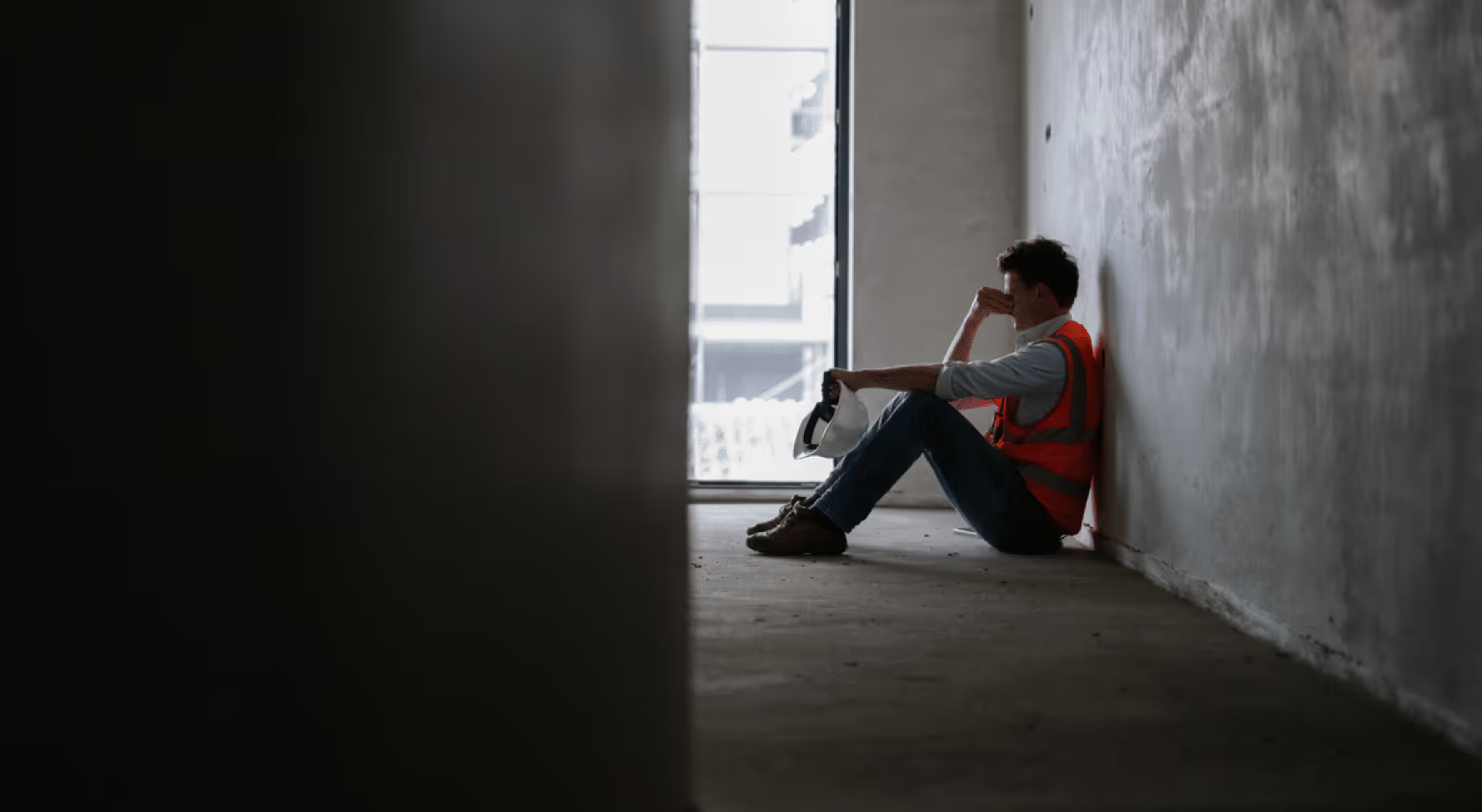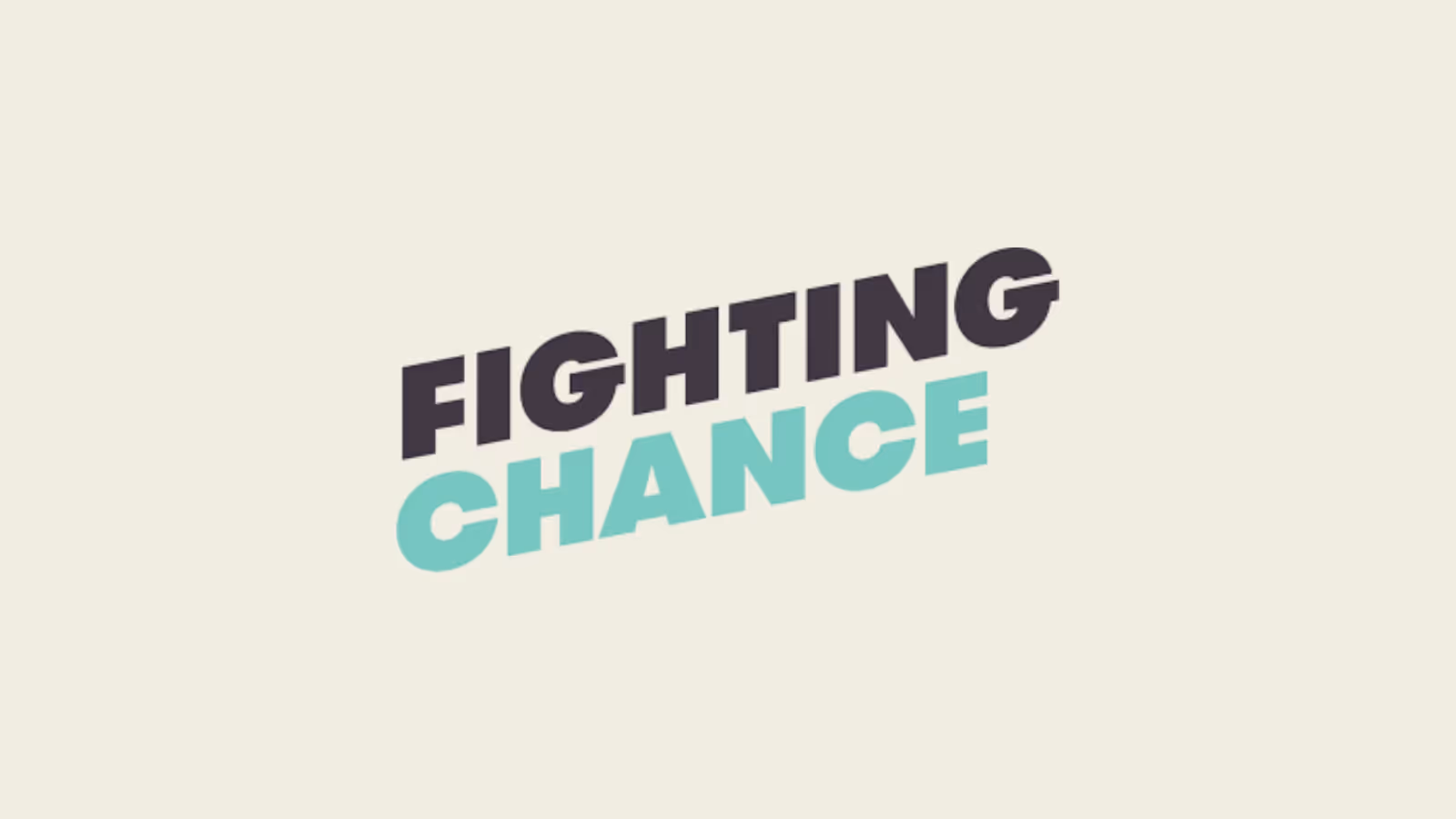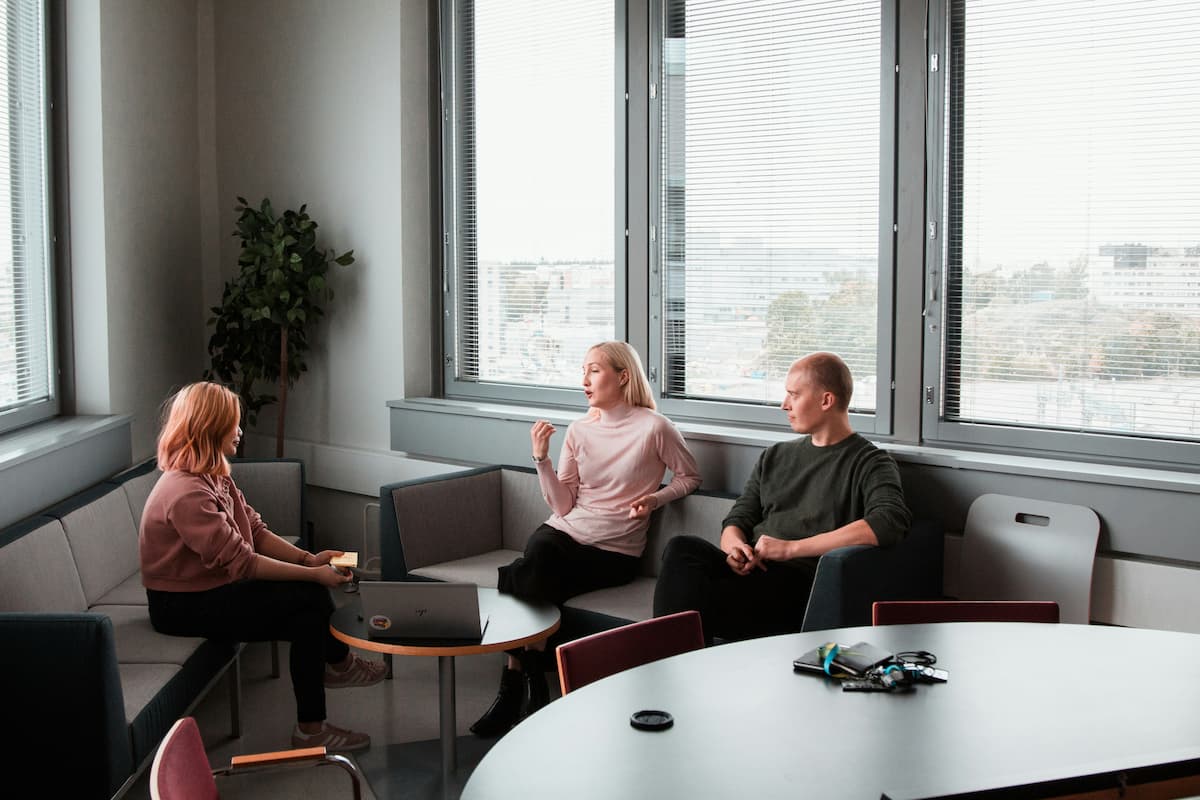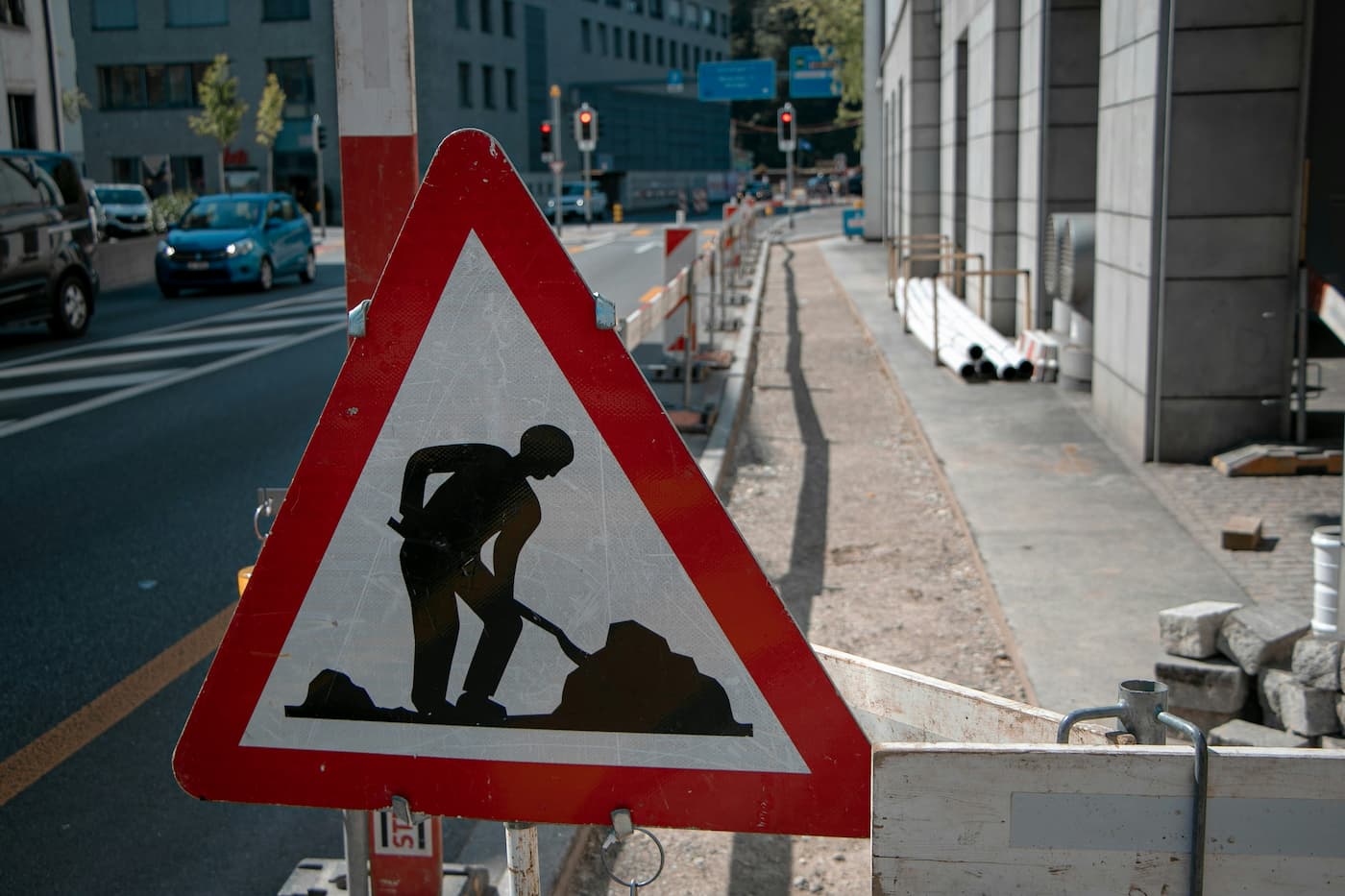Mental Health in Construction
Construction workers face double the mental health risk—learn why and how to help.

Key takeaways:
- Start and normalise the conversation around mental health
- Look out for at-risk workers
- Let your employees know they’re supported
- Get an EAP that actually works for workers
The Current State of Construction Mental Health
The highly stressful nature of the construction industry with tight deadlines, long hours, culture challenges, and poor job security, the prevalence of poor mental health is 2x higher than the rest of the Australian population. Construction workers are six times more likely to die from suicide than a workplace accident. Young men in the industry are twice as likely to commit suicide than peers in other industries.
While there is significant attention on preventing physical fatalities and injuries, there is still limited investment in reducing the impacts of psychosocial injuries in construction, despite data highlighting the increasing impacts of mental ill health on workers.
Companies understand the safety systems and regulations in place to prevent physical injuries on site, but there is a critical need to address the emerging silent killer: psychosocial hazards. A mental health condition is one of the costliest forms of workplace injury,
with a median time lost of 30.7 weeks (compared to 6.2 for physical injuries) and a median compensation paid of $55,270 per claim (compared to $13,883 for physical injuries and diseases) according to Safe Work Australia.
The Key Factors impacting mental health in construction
1. Construction Site Workplace Accidents and Injuries
The construction industry is dangerous, workers need to be diligent at all times to avoid physical hazards on a construction site. Construction, transport, mining, and manufacturing industries all have higher fatality rates per 100,000 workers than white-collar services, with machinery operators and drivers, and labourers being the most affected according to Safe Work Australia.
Injury rates are highest among construction workers who sleep less than seven hours per day and those who work more than 40 hours per week. Human errors, which are key factors responsible for construction accidents, are more likely when people are mentally worn out and exhausted from the demands of the job. A 2018 study found 64% of construction workers report working over 50 hours per week.
2. Lack of Work-Life Balance
It’s not uncommon for the construction industry to operate 7 days a week. Workers are required on the weekends, late nights and working away from home. Studies have highlighted higher rates of mental illness among the FIFO workforce, with one in three FIFO workers experiencing high levels of psychological distress.
Construction workers are more likely to miss important events and the opportunity to recharge by spending time with family, friends, and loved ones. This can create emotional detachment, loneliness, social isolation, leading to poor mental health.
3. The Labour Shortage
Attracting top talent is one of the industry’s most critical challenges for the future — and the increasing deficit of a skilled workforce is a risk to business and employees.
- The pandemic causing many workers to up-skill and enter industries offering remote working environments and a better work-life balance.
- Younger generations being more aware of the importance of mental health and wanting to maintain a good work-life balance.
Having staff shortage means remaining workers are put under more stress with tighter deadlines, less resources and less new talent being developed in the workforce.
4. Toxic Masculinity Culture and Bullying
The construction industry is infamous for bullying, hazing, and mental abuse in particular to younger workers and vulnerable populations. Workplace bullying has a significant impact on the mental wellbeing of workers, both on and off-site. Almost one quarter of young apprentices report being bullied at work, more than three times the national average. This is particular group is especially at risk as apprentices are 2.5 times more likely to experience suicidal thoughts than other young men.
5. Lack of Support and Training Around Mental Health
When it comes to physical safety, there is no shortage of training and monitoring on construction sites. However, when it comes to mental health, the standard approach of training is to provide an EAP number with no instructions on how to use it.
Additionally many managers feel poorly equipped managers to manage difficult conversations, even though recent Safework research found that 64% of construction workers have had to help a colleague concerning a mental health issues.
How to Change The Mental Health Narrative as a Leader
Start and normalise the conversation around mental health
Regular conversations about mental health and its impact can help to break down the stigma and macho attitude.
Lead by example: talking about the stress and pressure you are under will help create an open culture.
The more you talk about mental health and wellbeing openly, the more likely someone is to reach out for help when they most need it.
Look out for at-risk workers
Unlike other safety risks on-site warning signs of mental health challenges are hard to spot, but they do exist if you know what to look for. It’s important your leadership team is trained to spot the signs of at-risk workers and know how to approach these sensitive situations.
Have your managers and leaders trained in mental health best practices having difficult conversations and managing a crisis.
Let Your Employees Know They’re Supported
Construction companies need to have a clear mental health strategy to make sure workers know what to do and where to seek help, and build this into the workforce culture.
To create a strong mental health culture, managers and supervisors also need to request help and guidance from their employees. Have regularly scheduled meetings, whether in a group or individually, to discuss the needs of your team.
Consider practical steps to improve work life balance
A few steps managers and organisations can take to create a supportive work-life balance environment include:
- Making sure managers are healthy, stable models for a work-life balance
- Encouraging employees to take much-needed vacations and RDOs
- Capping how much overtime people are allowed to do, or creating a rotating roster for weekends
- Not contacting staff on weekends or days off
- Providing staff with 1-3 ‘mental health days’ out of their paid sick leave – no need for a certificate, no questions asked
- Engaging in team building activities, events, or exercises to foster a sense of unity and belonging
- Putting on a BBQ a couple of times a year for the team and inviting families along – getting to know each other as people not just as workers
Get an EAP that actually works for workers
Traditional Employee Assistance Programs that leave a phone number on the back of the toilet to call when a worker is already at the point of crisis are no longer sufficient. Consider how an EAP can be used to provide proactive interventions supporting workers before they reach crisis point.
Providing a digital EAP that engages employees through a simple digital platform and provides access to online counselling is a more proactive approach. Additionally, a good EAP like Foremind will capture indicators of wellbeing such as stress and satisfaction metrics to let you know action is needed on your sites. Find out more about the benefits of an EAP designed for workers.
Construction has always lead the way when it comes to managing physical health and safety, lets change the narrative by looking after people’s mental health as well as we do their physical health.
Related Content

Hello 👋 I’m Joel the founder of Foremind.
Are you ready for simplified support & compliance?
Latest insights
Answers to the frequently asked questions.
Still have questions?
Email us at enquiries@foremind.com.au and we'll get back to you quickly with a response
Yes, we have culturally competent counsellors available, including those able to work with first nation and CALD employees.
Onshore on secure AWS Servers in Sydney Australia. All data is encrypted in transit and at rest and our entire team is located in Australia.
Employees can access our platform on any device (mobile, laptop, desktop, etc.) as long you have the website link - no need to download any app on devices. You wouldn’t need to enrol any of your staff individually.- When we do our onboarding, we ask for the first name, last name and email of all your employees, and send out an email invite to all them which will allow them to create their own individual account to access the platform. For new staff we can also invite them or provide you with a unique link to embed in your onboarding process, whichever is more convenient for you. We also kick things off with a launch webinar or video to make sure everyone is aware of Foremind and how to use it. We’ll also provide you with any collateral such as posters, QR codes, brochures etc. to help drive awareness and encourage people to create an account in the platform.
The support line is answered by our reception service 24/7. It is for urgent platform or session-related issues only (e.g. *“My counsellor didn’t show”*) or helping staff create an account.





